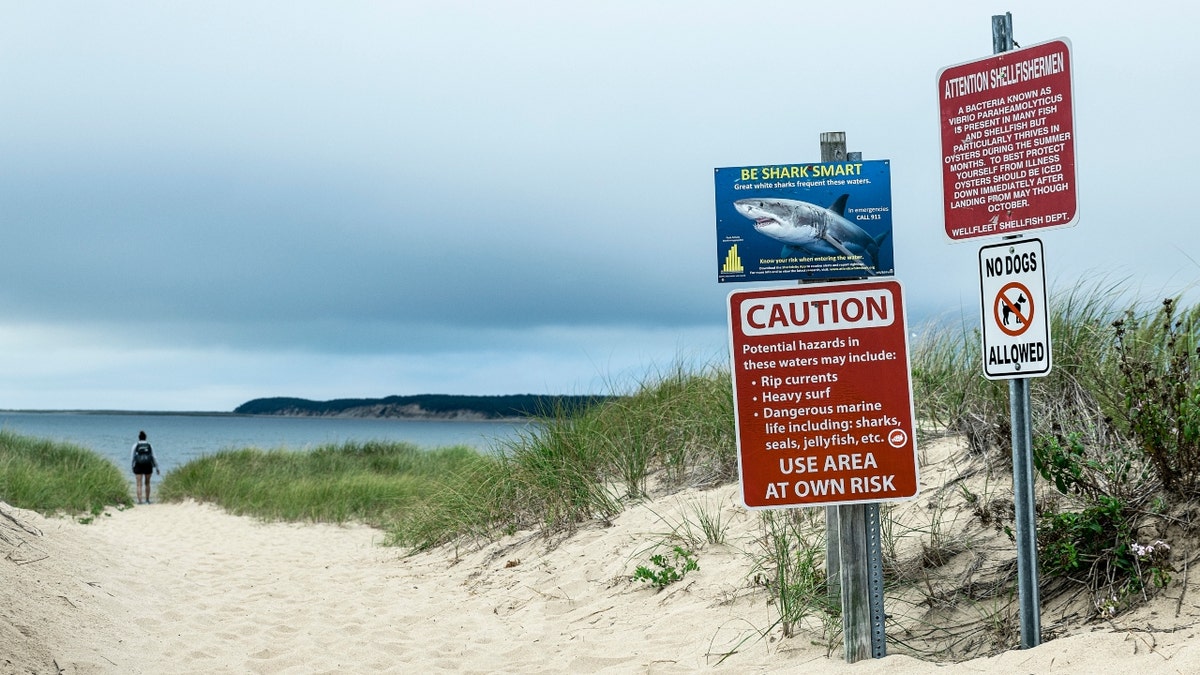Fox News Flash top headlines for July 29
Fox News Flash top headlines are here. Check out what's clicking on Foxnews.com.
A Maine beach was reportedly closed Wednesday afternoon after a great white shark sighting.
According to Bangor Daily News, Popham Beach State Park was closed less than an hour after the shark sighting was reported at 5:20 p.m. local time.
The Atlantic White Shark Conservancy's Sharktivity app confirmed the beach closure. The beach reopened Thursday morning.
SHARK ATTACKS: EXPERT SHARES FACTS ABOUT THE OCEAN PREDATOR AMID UPTICK IN SIGHTINGS
The app also reported an unconfirmed sighting off Small Point, Maine, last week.

People walk in the shallow water at Popham Beach State Park, where bathers were told to only go in the water ankle deep because of a recent shark attack and subsequent shark sightings off the Maine coast. ((Staff Photo by Gregory Rec/Portland Press Herald via Getty Images))
Shark sightings have closed East Coast beaches throughout July.
Tens of confirmed sightings have been tracked on Sharktivity in the waters near Massachusetts' Cape Cod.
For New York beachgoers, bites have been frequent.

A shark warning and beach advisory in Wellfleet, Massachusetts on April 9, 2019. (Photo by John Greim/LightRocket via Getty Images)
The Florida of Natural History and the University of Florida's International Shark Attack File (ISAF) reported that there have been six possible bites there from June 30 to July 20, 2022.
"ISAF has not yet confirmed shark involvement in all cases. All victims survived with relatively minor injuries," it said.
ISAF said only 12 unprovoked bites had been recorded in New York's history prior to this year, none of which were fatal.

This photo taken on July 5, 2022 shows a sand tiger shark in the Scientific Center aquarium, in Hawalli Governorate, Kuwait. (Photo by Asad/Xinhua via Getty Images)
CLICK HERE TO GET THE FOX NEWS APP
It noted that there is a nursery for sand tiger sharks located off Fire Island, New York.
Scientists also cite warming ocean temperatures and a resurgence of bunker fish for the increase in sightings.











































